-
 +1 +1
+1 +1Revealed: Shell oil non-profit donated to anti-climate groups behind Project 2025
Foundation says it ‘does not endorse any organizations’ while funneling hundreds of thousands to rightwing causes
-
 +36 +8
+36 +8Global warming might not happen quite as fast as we thought – here’s why
Plants will absorb more carbon dioxide than predicted, meaning models could be overestimating the speed which the planet will heat up
-
 +35 +6
+35 +6New study delves into the motivations behind climate action in the United States
A recent study published in PLOS One indicates a rising number of Americans are adopting climate-friendly behaviors, primarily driven by their environmental concerns and sense of responsibility.
-
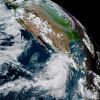 +29 +4
+29 +4Disasters are moving to new places faster than we’re keeping up with them
The range of possible disasters is growing for communities across America.
-
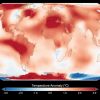 +29 +3
+29 +3July 2023 was the hottest month on Earth since at least 1880 'by a longshot,' NASA says
"A year like this gives us a glimpse at how rising temperatures and heavier rains can impact our society and stress critical infrastructure over the next decade."
-
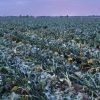 +32 +9
+32 +9‘Never seen that much rain’: Quebec farmers say climate change killing crops | Globalnews.ca
Quebec farmers are demanding more help from the provincial government in order to face the rise in extreme weather events, which they say are killing crops on a massive scale.
-
 +21 +5
+21 +5The latest weapon against climate change is concrete
Carbon removal is a hot topic in sustainability, with many companies involved in direct air capture. But now, a Dublin company is turning surplus concrete into a low-cost, carbon removal tool via a process called 'enhanced weathering'. Silicate is the first enhanced weathering company to leverage the massive carbon removal potential of surplus concrete. This is the first time concrete has ever been used in this way.
-
 +30 +3
+30 +3Hops for beer flourish under solar panels. They're not the only crop thriving in the shade.
A farm in Bavaria is covering its hops with solar panels, providing electricity to 250 households and shading the plants from the increasingly scorching summer heat in the process.
-
 +25 +3
+25 +3Solar storm on Thursday expected to make Northern Lights visible in 17 states
A solar storm forecast for Thursday is expected to give skygazers in 17 American states a chance to glimpse the Northern Lights, the colorful sky show that happens when solar wind hits the atmosphere. Northern Lights, also known as aurora borealis, are most often seen in Alaska, Canada and Scandinavia, but an 11-year solar cycle that's expected to peak in 2024 is making the lights visible in places farther to the south. Three months ago, the light displays were visible in Arizona, marking the third severe geomagnetic storm since the current solar cycle began in 2019.
-
 +22 +4
+22 +4The ground is deforming, and buildings aren’t ready
First study to quantify effects of subsurface climate change on civil infrastructure
-
 +4 +1
+4 +1Earth reaches hottest day ever recorded 3 days in a row
For three days in a row, the planet reached its hottest day ever recorded as regions all over the world endure dangerous heat. Earth warmed to the highest temperature ever recorded by human-made instruments when the average global temperature reached 17.18 degrees Celsius, or 62.92 degrees Fahrenheit, on Tuesday, as millions of Americans celebrated the Fourth of July, data from the U.S. National Centers for Environmental Prediction shows.
-
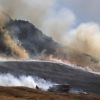 +14 +2
+14 +2Last month was the planet's hottest June on record by a huge margin
June was the hottest such month on record for the planet by a “substantial margin,” the EU’s Copernicus Climate Change Service reported Thursday.
-
 +13 +2
+13 +2Yes, it’s hot. But this could be one of the coolest summers of the rest of your life.
Heat waves like those in Texas and Europe are likely to get worse on the whole, not better.
-
 +4 +1
+4 +1El Niño has officially begun. UN says phenomenon likely to threaten lives, break temperature records
The warmest year ever recorded, 2016, started off with a powerful El Nino that helped to boost global temperatures.
-
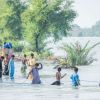 +4 +1
+4 +1How We Scapegoat Climate Change Migrants
Why we are not more positive toward those displaced by climate change?
-
 +23 +4
+23 +4Canada marks worst wildfire season on record
Smoke emitting from Canadian wildfires has crossed the Atlantic Ocean and is now drifting across western Europe as Canada marks its worst wildfire season on record.
-
 +21 +4
+21 +4Constitutional climate trial ends, verdict could take 'months'
The nation’s first youth-led constitutional climate trial ended Tuesday in Helena. Sixteen young people are suing Montana state leaders for allegedly violating their constitutional right to a clean and healthful environment by promoting fossil fuel policies and contributing to climate change.
-
 +3 +1
+3 +1Positive environmental stories: A 2023 roundup
Eco-anxiety, climate doom, environmental existential dread - as green journalists, we see these terms used a lot - and often feel them ourselves. While there's a lot to be worried about when it comes to the climate and nature crises, we must not lose hope - because hopelessness breeds apathy.
-
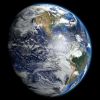 +3 +1
+3 +1Humans have pumped so much groundwater, we’ve shifted Earth’s axis
Changes in the distribution of groundwater around the planet between 1993 and 2010 were enough to make Earth's poles drift by 80 centimetres
-
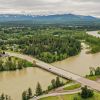 +12 +3
+12 +3Climate expert: ‘The harm will get worse’
Scientific testimony figures prominently in second day of Held v. Montana climate trial.
Submit a link
Start a discussion




















